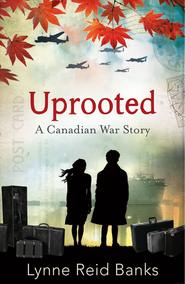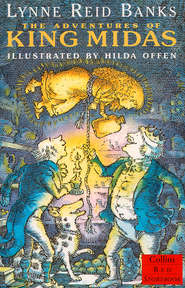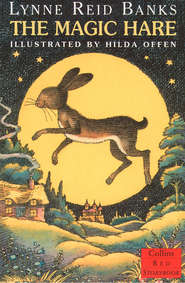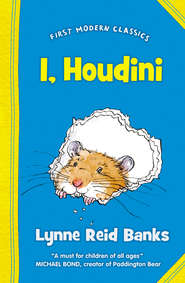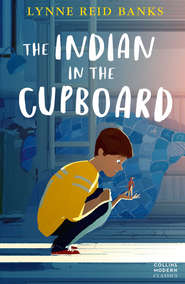По всем вопросам обращайтесь на: info@litportal.ru
(©) 2003-2024.
✖
The Dungeon
Настройки чтения
Размер шрифта
Высота строк
Поля
Here were city folk, so wondrous-strange they might have dropped from the skies indeed. They wore long colourful robes and round-toed, thick-soled footwear. Their long black hair was piled on their heads, and some wore elaborate headdresses. Their wide sleeves, in which they tucked their hands, looked as if they were covered with flowers; they walked with small, elegant steps, seeming to glide along like wheeled toys. All were men.
Out of nothing more than curiosity, he looked for the women. The ones he had seen in the fields did not have small feet, but he thought, ‘In the city, they’re more refined – perhaps here they grow the small-boned ones.’ However, no women were to be seen. McLennan was disappointed. He wanted to see how anyone could walk on feet the size of pears. But perhaps it was only a tale.
Away from the marketplace, he soon discovered that he did, indeed, strike fear and disgust, and perhaps even anger, into the hearts of these strange people, just as Afonso had said.
The children fled at the sight of him. Talk died at his approach, and men drew back from him, their faces blank but their eyes growing narrower still. He walked on, counting on his size and foreignness to protect him, doing nothing to arouse them against him.
He walked a long way, staring around him at the beautiful buildings and other fascinatingly unfamiliar sights. Suddenly he saw a group of men. They appeared to be marching; they wore something like a uniform – a sort of leather armour, headdresses that combined a head-wrapping and a pointed metal helmet, and swords worn stuck in their belts. These must surely be guards, or soldiers.
He decided to follow them. Not too close! They began to glance uneasily over their shoulders and walk faster and faster. He quickened his own pace. Before long they broke ranks and ran pell-mell. McLennan burst out laughing at the sight, and ran after them, shouting, ‘Wait for me! I’ll join ye!’ They ran far ahead and eventually scattered, and he lost them amid the low buildings.
One of them had drawn and then dropped his weapon. It was a sword, curved, with a square-ended blade and a heavy bronze handle, thickly embossed to give a good grip. McLennan picked it up and hefted it in his hand. He liked the feel of it, and it had a keen edge. He threw it in the air several times and caught it deftly, aware that he was being watched. He ignored this and walked on, swishing the curved sword, making patterns in the air.
Suddenly – in the space of a moment – he found himself surrounded. The soldiers (if that’s what they were) had regrouped and were on all sides of him, threatening him. Their swords, like the one he held, were drawn, and pointing at him.
One man stepped forward, empty-handed. He stood in front of the big Scot and began to harangue him in the strange tongue. McLennan liked his courage. Besides, he quickly saw that he was outmanoeuvred and would have to yield, so he decided to do it with good grace.
He turned the sword till he held it by the blade, bent his left arm, and offered the handle to the man across his sleeve with a courteous bow and a smile.
‘Take what’s yours, my manny,’ he said. ‘I’ll no’ want to be fighting the lot of ye.’
The swordless man was taken aback. But when McLennan continued to offer him his sword, he reached out from as far away as he could and snatched it. As he drew it quickly across McLennan’s arm, the sharp blade sliced through his sleeve and cut his skin.
There was a gasp from the men standing menacing McLennan. Clearly they thought the sight of his own blood would send him into a rage. But McLennan merely laughed and parted the cloth to expose the wound.
‘First blood to you!’ he said. ‘Come, let’s be friends!’ And he smeared some blood on his right hand, to show his wound was nothing, and offered it to the other man.
They stiffened, crouched, held their swords at the ready. But the man he faced relaxed a little, and a faint smile crossed his face. It was probably mere nervousness, but McLennan, himself smiling as broadly as he could through his red whiskers, boomed, ‘So, smiling is something we share! Let’s see what else we have in common.’
He dropped his bundle and held up both hands to show he was unarmed. Then he gestured to his mouth as a sign he wanted to eat and drink. He folded his arms across his tattered plaid and waited.
After exchanging talk in undertones, they formed up again and marched away from him. He followed, marching in step with them.
Chapter Three (#ulink_11b41b65-6c36-5c28-9795-db5e7e9b8e94)
He attached himself to the troop of armoured men.
At first they were very suspicious, even afraid of him, and despite his gold, they tried many tricks to shake him off, but he would not be shaken. They were soldiers, as he soon discovered when they joined with others, who had left the city in marching order under an officer and, eventually, after some days of travel away from the city, they fought their first battle.
By this time McLennan had realised these were not the dreaded Mongols with their horseback charges and unbeatable tactics; nor were they a regular army, fighting the invaders. They were a rough sort of private troop belonging to some warlord, fighting random skirmishes against others of the same kind.
These people mostly fought hand-to-hand with spears and swords, using tactics to surprise the enemy. At first McLennan fought the way he always had. When the officer gave the signal, he would throw up his kilt to show he wore nothing under it and was completely unafraid, and charge towards the enemy uttering blood-curdling war cries. His main weapon was a heavy club which he swung around his head in circles as he ran. His comrades were, at first, more startled and shocked than the enemy. But after a couple of these forays, they began to see the use of him.
When the opposing soldiers saw this foreign giant with his fiery hair and beard, running at them showing his nakedness and screaming in a foreign tongue, they often turned and fled. If he caught up with them, they wished they had run away faster. This delighted McLennan, who would rejoin his new companions roaring with laughter, even when he was covered with blood, some of which was his own.
His fellow soldiers began to take care of him. They taught him some of their language, gave him the best sleeping places and the best food – such as it was.
In general, he relished the fighting, and didn’t mind the rough life; it suited him quite well. But he disliked being on a level with the other men, whom he felt himself far above, and never got used to the food, which, when the sauces were too full of the tongue-burn, made him ill. The only thing he liked to swallow – and which calmed his indigestion – was a hot brown drink made of small, dried-up green leaves. It didn’t compare to rye whiskey, mead or ale, but it cheered him and put warmth into his belly. This, he learned, was the ‘tea’ Afonso had mentioned. To his surprise, McLennan became quite addicted to it.
All the time, he kept his eyes open for new things – new ideas. These Mi-Kis had some very clever devices with which to attack forts or, on one occasion, a walled town. One was a construction of timber, bamboo and twisted rope, on wheels so it could be moved, which could hurl enormous stones against walls or even over them with tremendous force. McLennan had heard of clumsy, hard-to-move siege-engines, with unpronounceable French names, that threw rocks or even fireballs, but he had never actually seen one. He called this Mi-Ki machine a catapult-on-wheels and made a detailed sketch of it.
One day, in a lull in the fighting, McLennan and his comrades were in a town belonging to their particular warlord, where they were part of the garrison, and they visited a poor teahouse. It had a straw roof and an earth floor, but unlike many such places, it had tables and stools. McLennan stamped up the wooden steps and sat down.
The owner, a woman, ran and hid behind the kitchen screen, but the other soldiers shouted after her, ‘He’s all right! The foreign giant is with us!’ So she emerged and edged up to him cautiously.
‘Give me tea,’ McLennan said in his new language, and slapped the tabletop.
The woman went behind the screen. After a short time, a little girl came out with tea in a clay teapot as big as her head, and the usual unglazed cup with no handle. She walked to his table with a strange, hobbling gait and put them in front of him. She was trembling.
‘Pour!’ he said gruffly.
He glanced up at her under his eyebrows. She was only six or seven years old and he could see she was very frightened of him, but she did as she was told and didn’t run away, or flinch at his growl. McLennan swigged back the tea. It was very good tea indeed. He said, ‘More!’ She poured again, her thin, fragile arms trembling with the weight of the big teapot. The other men were watching. An idea – no, an impulse – was forming in McLennan’s mind. He looked at the child and saw that she was sturdy despite her small size, brave in her fear, and very obedient.
‘Fetch your mother,’ he grunted.
The little girl shuffled behind the screen, and soon the woman came out.
‘How many daughters you have?’ he said in the foreign tongue.
She seemed to have to count them. At last she held up nine fingers.
‘Sell me one,’ said McLennan.
The soldiers whispered in surprise. The woman stared at him as if she couldn’t take it in. ‘Which one do you want?’
‘That one,’ he said, pointing to the little girl who was peeping from behind the screen.
‘No,’ said the woman firmly. ‘Not that one.’
McLennan felt balked. He already knew that in poorer parts of this country the selling of daughters by poor families or widows was a common way to fight starvation – he had been offered girl-children before by wretched parents who detained him with desperate cries of ‘Good slave! Work hard!’ about children younger than this one.
He half-glanced at the other men for guidance. Kai-fung, the closest he had to a friend among them – the one whose sword he had picked up, that first day – was grinning knowingly.
‘You want a servant? Pick another,’ he said. ‘For that one, she’ll want too much.’ He eked out his words with signs till McLennan understood.
The woman was clearly agitated. She went to the screen, pushed the little one out of sight and dragged out two or three more. They were older, and had stolid looks that promised stamina and cow-like obedience, but somehow McLennan didn’t even want to glance at them. What was special about the little one? Denied her, his impulse hardened into determination.
He brought out a packet of the strange paper money they used here, which he had been using for small purchases. The woman shook her head. Reluctantly, he fished out a gold half-sovereign.
When the widow saw the gleam of gold in the man’s big hand, her need overcame her reluctance. With tears in her eyes, she shooed the bigger girls out of sight and led the youngest out. Now the men laughed. They seldom laughed, and McLennan at once suspected he was being made a fool of.
‘Why laugh?’ he asked angrily.
They exchanged looks. Then Kai-fung pointed to her feet.
Until that moment, McLennan had never satisfied his wish to see a woman with small feet. He had almost forgotten the tales he had heard. But now he saw something that made him start upright, staring down.
Because she was still small, the smallness of her feet was not very noticeable, but still he could see that there was something peculiar about them. They looked not only smaller than one would expect, but strangely shaped.






